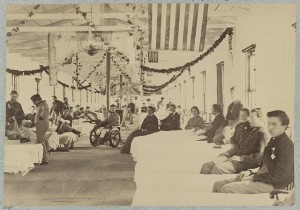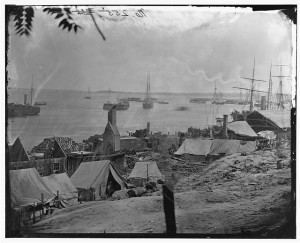
“City Point, Virginia. Wharves after the explosion of ordnance barges on August [9], 1864”
150 years ago today a huge explosion occurred at the wharf at City Point, a major Union supply depot and General Grant’s headquarters. At the time most people assumed it was an accident. It was later learned that Confederate saboteur John Maxwell, with the help of an accomplice, had managed to get his “horological torpedo” on a supply barge, the J. E. Kendric. The time bomb exploded as planned and caused a great deal of death and destruction. In addition to Civil War Daily Gazette you can read other good accounts at The Siege of Petersburg Online and Military History Online.
People in Richmond could have read a quick telegraph about the mysterious explosion and then later a more detailed report by a New-York Daily Tribune correspondent (according to the Richmond editors). The Tribune reporter speculated on possible non-accidental causes.
From the Richmond Daily Dispatch August 11, 1864:
From Petersburg.
Petersburg, August 9.
–About noon to-day a heavy explosion occurred in rear of the enemy’s lines, on the City Point road. The cause is unexplained. There was rather more than the usual sharpshooting and mortar shelling this evening.–The weather is sultry. There was a slight rain to-day.
From the Richmond Daily Dispatch August 17, 1864:
The ammunition explosion at City Point — terrible effects.
Fifty-eight Yankees were killed and one hundred and twenty-six wounded by the ammunition explosion at City Point on the 9th instant. A correspondent of the New York Tribune, who witnessed it, says:
Every frame-house in the town was jarred by the concussion alone to the extent of having its inside plastering knocked off, beside other damages by missiles, &c. Against the houses and other obstructions near the wharf, and even upon the hill, hundreds, and perhaps thousands, of broken, twisted and splintered muskets, and such debris, lay in drifts, like straw drifted by the wind; and all over the ground for at least a quarter of a mile from the scene of the explosion, shell, solid shot, grape, cannister, musket and Minnie balls, pieces of shells, nails, screws, bolts and bolt-heads, and fragments of almost everything — wooden, iron and leaden — you can think of, are strewn and drifted like hail and chunks of ice-immediately after a dreadful hail storm.
Everywhere are seen the rents, dents, deep abrasions and scarred furrows of the iron and leaden storm. The thousandth part cannot be told.
My first thought was that an ammunition car had exploded just ahead of the one I was on, and that it would be of little use to try to escape the storm that had gone up and would come down — that one was about as safe in one place as another; and oh! how it did rain and hail all the terrible instruments of war.
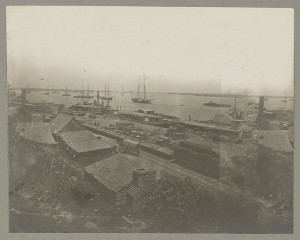
“City Point, Va., July 5, 1864”
It was not a railroad car, but the ammunition barge J. E. Kendrick, that had exploded from the careless handling of percussion shells or some other kind of ammunition, it is supposed. No one that was aboard of the boat remains to tell the tale of her destruction. The splinters that strew the river may be hers, or they may be not. The section of the twisted ribs of a keel that lie in the most frequented part of the town, on the hill, two hundred yards distant, may be hers, or they may belong to one of her disappeared consorts.
You have read of eruptions of Vesuvius, such as buried Herculaneum and Pompeii. You have seen illustrations of them in the books. This must have been such an explosion as one of these, except that, instead of lava and dust and ashes, it rained over the circle of a mile, in whole packages and by piece-meal, everything you can imagine at a military depot. Entire boxes of fixed ammunition came down among the tents in the town, a quarter of a mile distant, and scarcely a tent, or house, or boat, can be found within the circle of a mile that is not riddled by shell, solid shot, or small ammunition.
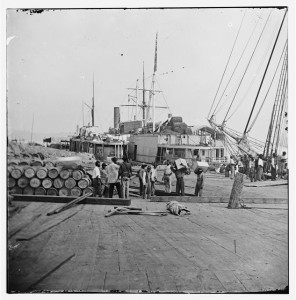
“City Point, Va. African Americans unloading vessels at landing”
How many were blown in atoms into the river from Kendrick, never to be heard of, is not known. The captain of the Kendrick is safe, having been absent at the time of the explosion on another boat. The other boats entirely destroyed and sunk were the General Meade and the J. C. Campbell.
The massive pine wharf in front of where these boats lay, which was bolted down upon piles and sleepers of pine trees, is brushed aside for about a third of its length, as if it had been made of the paper I write on, while the substantial plank warehouse, with massive beams, built for at least a quarter of a century, has been crushed nearly its entire length, as if it had been a lady’s band-box.–The freight train that was just ready to start when the explosion happened, is shattered in nearly every car, though not past repair; and I had the uninteresting satisfaction of seeing where my remains would probably have lain, on the heads of the whiskey barrels, if I had remained in the car I first occupied.
The pine-board row, in which were the post-office, Adams’ Express office, and a quartermaster’s office, was also crushed by the concussion and the heavier forces brought against it, like a band-box, but fortunately, or rather miraculously, none of its occupants were seriously injured.
Various theories are afloat as to the cause of the explosion. Some say the careless handling of ammunition; others, an old-time torpedo; some surmise a rebel spy in the matter; while others attribute the disaster to a rebel shell or shot from across the river. The matter will be thoroughly investigated to-day. The Government stores in the big warehouse were considerably injured by water and otherwise, but to no very great extent.
You can view Arthur R. Waud’s sketch of the explosion at Son of the South

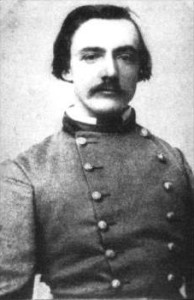
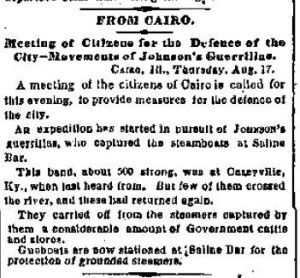
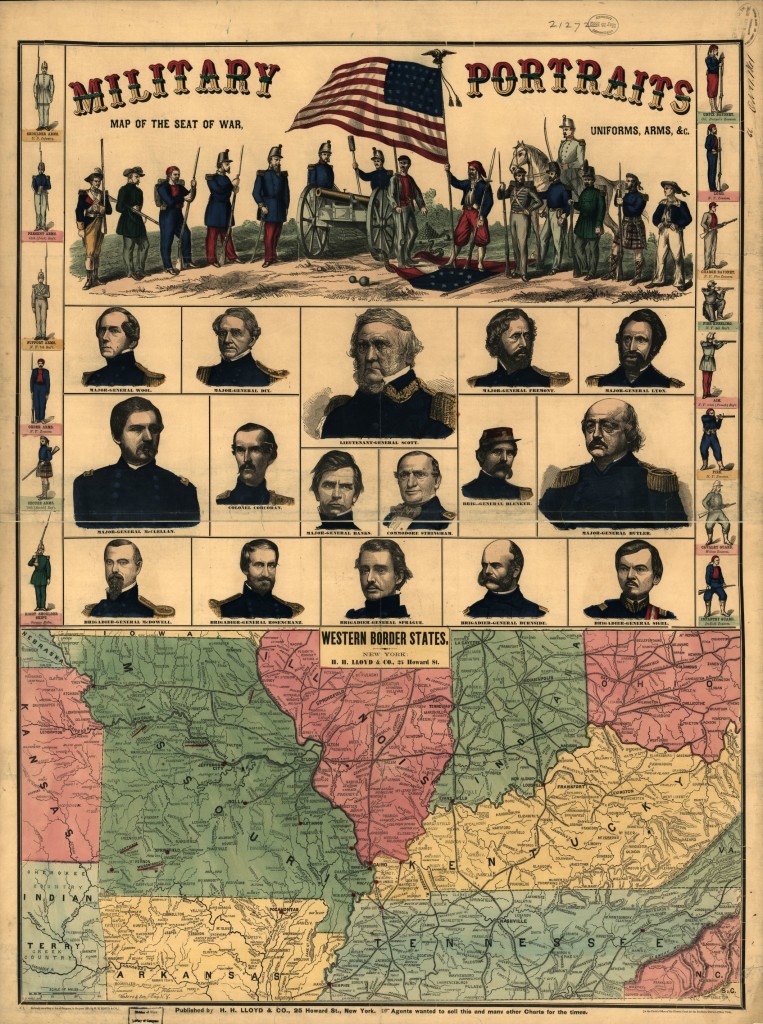
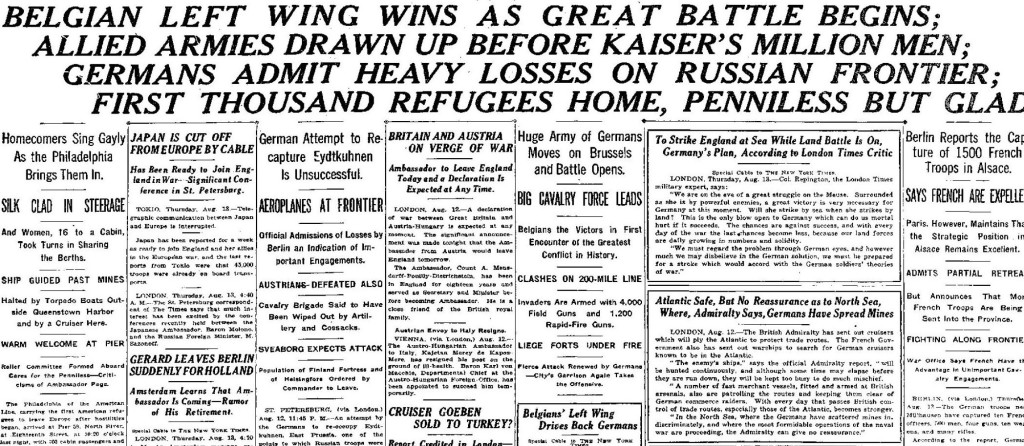



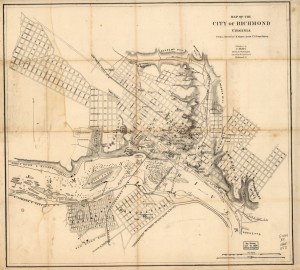
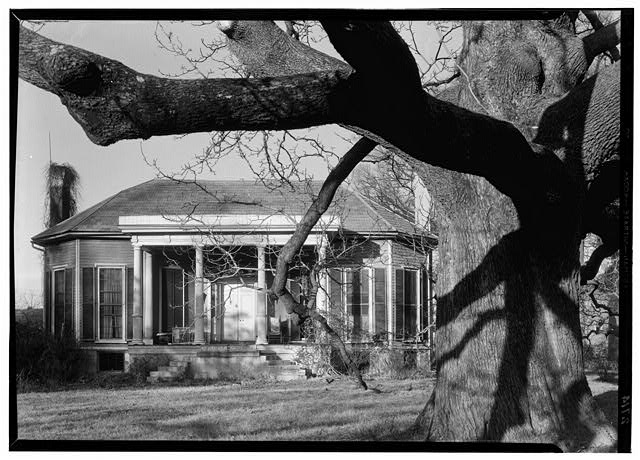
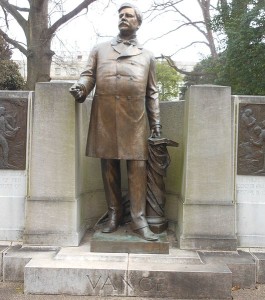
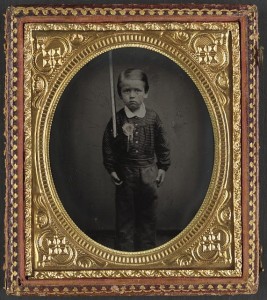
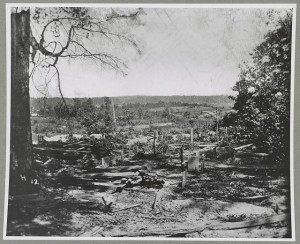
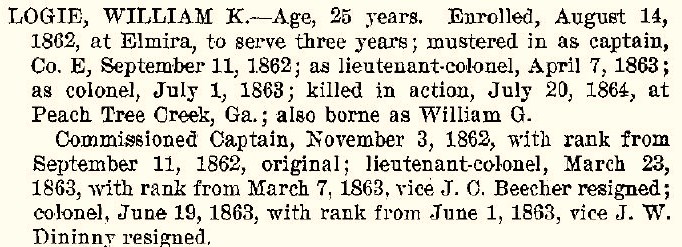
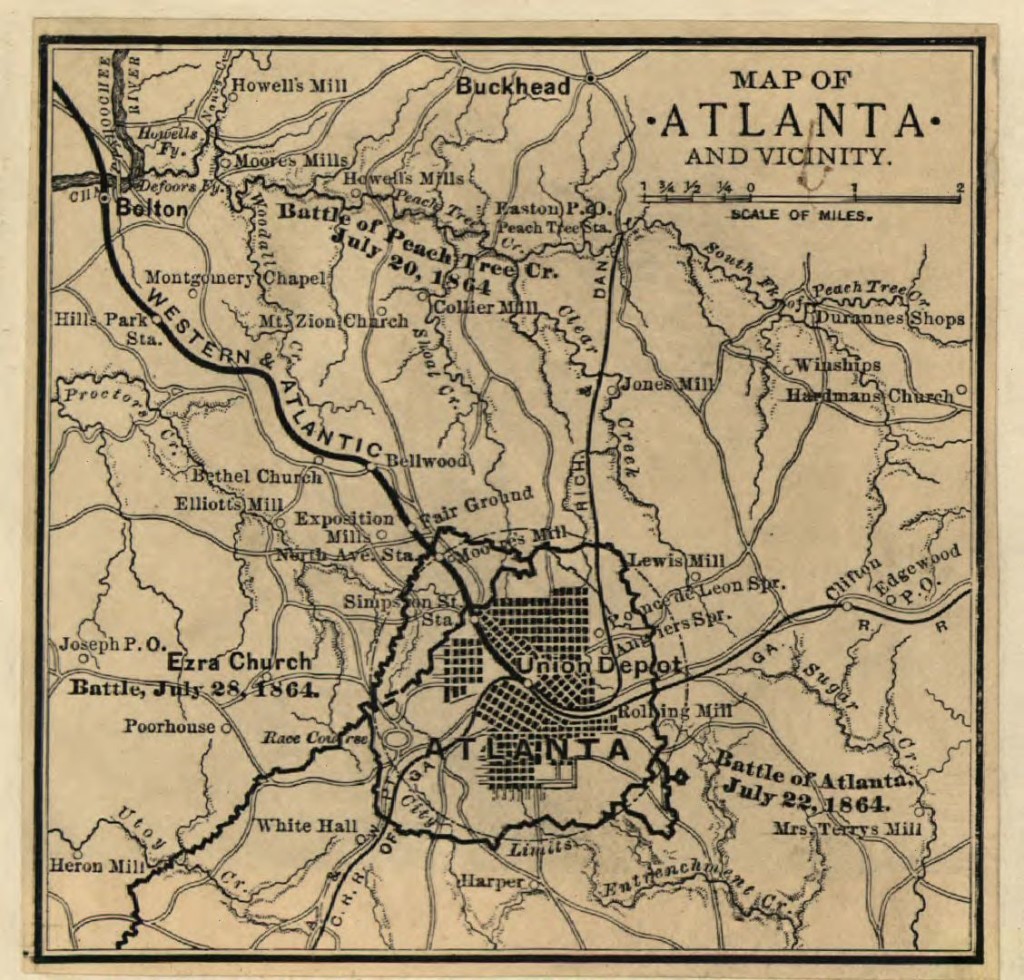
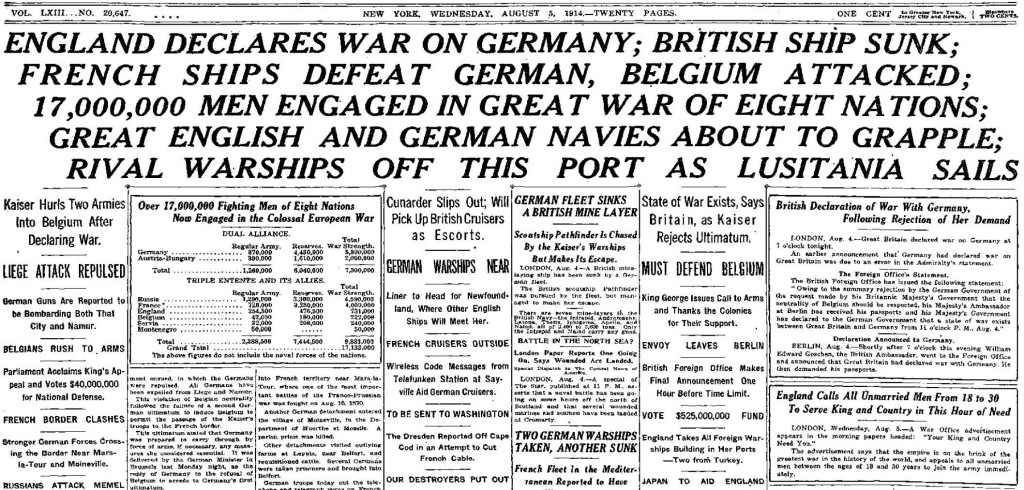
![A camp in front of Petersburg, Va. August, 1864 ( photographed 1864, [printed between 1880 and 1889]; LOC: LC-DIG-ppmsca-33099)](https://www.bluegrayreview.com/wp-content/uploads/2014/08/33099r-300x223.jpg)

